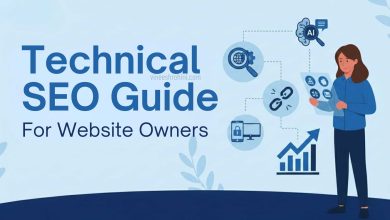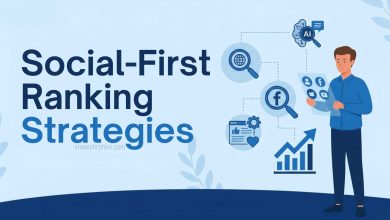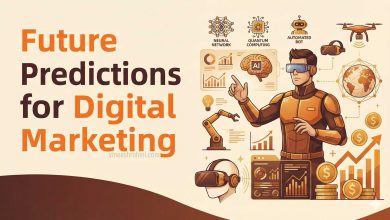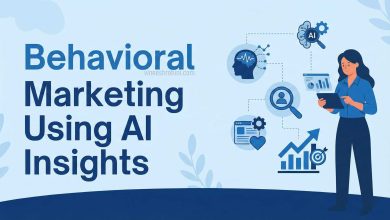SEO vs SEM – Which Is Better for Your Business in 2025 ?
SEO vs SEM : In 2025, digital marketing is no longer optional—it’s the backbone of business growth. Whether you’re a small business owner, startup founder, or enterprise marketer, online visibility can make or break your revenue. Among all the digital marketing tools, SEO and SEM stand out as two of the most impactful ways to gain visibility on search engines. But they are not the same. SEO is the long-term strategy to climb up search rankings organically, while SEM offers a quick but often costly way to appear at the top of search results through paid ads.
Table of Contents
In this guide, we’ll dive deep into SEO and SEM, their differences, their pros and cons, and help you decide which is better for your business in 2025
What is SEO in 2025?
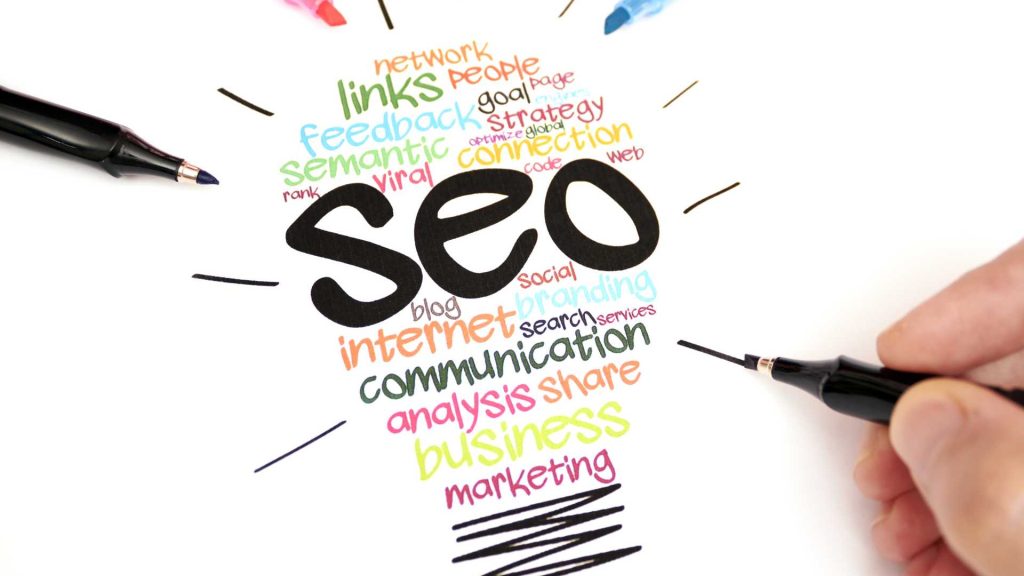
SEO, or Search Engine Optimization, refers to the process of optimizing your website and content to rank higher in organic search engine results. It’s an unpaid strategy, but it requires time, effort, and skill to implement successfully. In 2025, SEO has evolved dramatically. G’s algorithms are now powered by advanced AI, and search intent plays a crucial role in how content is ranked. Voice search, AI-generated content, and mobile-first indexing are no longer trends—they are the norm. SEO in 2025 requires technical excellence, authoritative content, strong user experience (UX), and robust backlink profiles
What is SEM in 2025?
SEM, or Search Engine Marketing, refers to paid strategies to gain visibility on search engines. This primarily includes PPC advertising like G Ads.
Also Read : Top 10 Winning Dropshipping Niches for 2025
In 2025, SEM is more intelligent than ever. G Ads and Bing Ads use machine learning algorithms to target users with laser precision. Ad personalization, automated bidding, audience segmentation, and performance tracking are highly advanced. Businesses can now create highly relevant and personalized ads that convert better than ever. However, the CPC has also increased across most industries due to higher competition
Key Differences Between SEO and SEM
The main difference between SEO and SEM lies in cost and speed. SEO is free in terms of ad spend but demands time and effort. SEM, on the other hand, gives immediate results but requires a budget. SEO builds authority and trust over time, while SEM buys visibility instantly. Additionally, SEO is a long-term asset—your content can generate leads for years if well-optimized. SEM campaigns, however, stop working the moment your budget runs out. In 2025, the line between SEO and SEM is also blurring, with many businesses using both for optimal results
Pros and Cons of SEO
Pros:
- Cost-effective in the long run
- Builds organic traffic and credibility
- Sustainable, long-term growth strategy
- Supports brand authority and trust
- Great ROI over time
Cons:
- Takes time to see results
- Requires constant updates and optimization
- Algorithm changes can affect performance
- Highly competitive keywords are difficult to rank for
Pros and Cons of SEM
Pros:
- Immediate visibility on search engines
- Highly targeted campaigns
- Scalable with clear tracking and analytics
- Great for time-sensitive promotions
- Allows budget control
Cons:
- Can be expensive, especially in competitive niches
- Traffic stops when you stop paying
- Ad fatigue and tap fraud issues
- Less brand credibility compared to organic results
When Should You Use SEO in 2025?
SEO is the best choice if you are looking for long-term growth and are willing to invest time and effort. If your business wants to build authority, attract sustainable traffic, and generate leads without paying for each tap, SEO is ideal. It works well for blogs, content marketing campaigns, SaaS websites, e-commerce platforms, and professional service providers. SEO is also a smart move if you’re in a niche where competition in paid ads is high, and organic rankings can save you significant money in the long run. SEO is particularly important in 2025 with the rise of AI-generated content. G prioritizes helpful, human-centered, original content—so your SEO strategy must focus on quality and E-E-A-T (Experience, Expertise, Authoritativeness, Trustworthiness)
When Should You Use SEM in 2025?
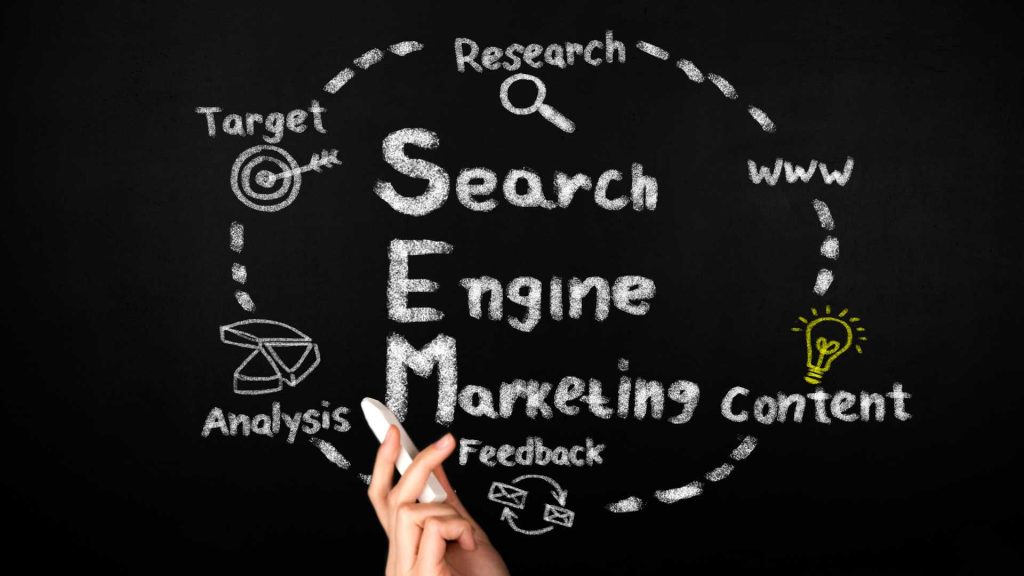
SEM is perfect for businesses that want fast results. If you’ve just launched a new product, are running a time-limited promotion, or want to test new markets, SEM can deliver results within hours. It’s also ideal for lead generation campaigns, retargeting, and competitor conquesting. In 2025, SEM is heavily powered by automation and data. With tools like Performance Max by G, advertisers can reach users across search, display, YT, Gmail, and Discover with a single campaign. SEM also allows for precise audience segmentation using demographics, location, device, and even intent signals, making it ideal for conversion-oriented strategies
The Hybrid Strategy: SEO + SEM for 2025
The best marketing strategies in 2025 combine both SEO and SEM. This integrated approach helps you dominate search results both organically and through ads. Use SEM to capture quick wins, generate leads, and test messaging. Use SEO to build long-term value, grow brand authority, and reduce dependency on paid traffic. Together, they offer a balanced funnel: SEM feeds the top and middle of the funnel, while SEO nurtures and converts at the bottom. For example, a startup can use G Ads to get its first customers quickly, while simultaneously building SEO-optimized content to reduce future ad spend. Similarly, an e-commerce brand can use SEM for high-converting keywords and SEO to drive blog and product page traffic
Key Metrics to Compare SEO vs SEM in 2025
Cost: SEO costs more in time and resources upfront, but has compounding benefits. SEM costs more per lead or tap, but gives immediate results
Time to Results: SEO may take 3-6 months to gain traction. SEM results are almost immediate, often within hours
Traffic Quality: SEO traffic tends to be higher quality with better engagement. SEM traffic may include ad tapers with low intent unless targeted properly
Scalability: SEM scales faster, but at a higher cost. SEO scales slower but can handle large traffic volumes without additional cost
Control: SEM gives more control over targeting, messaging, and timing. SEO depends on algorithm changes and content quality
SEO and SEM Trends to Watch in 2025
- AI and Automation: AI is driving both SEO and SEM. Tools like ChatGPT, Jasper, and Surfer SEO help with content optimization, while SEM platforms offer automated bidding, targeting, and creative suggestions
- Voice and Visual Search: SEO must adapt to voice queries and visual search using structured data, featured snippets, and image optimization
- Privacy and Data Regulations: SEM targeting is changing due to cookie restrictions and privacy laws. First-party data is becoming essential
- Zero-Tap Searches: SEO must optimize for snippets, FAQs, and other SERP features that don’t require a tap but still provide value
- Video Content: Both SEO and SEM strategies now include video as a core format—especially for platforms like YT, TikTok, and Insta
How to Decide: SEO or SEM for Your Business in 2025?
To choose between SEO and SEM, you must assess your goals, budget, timeline, and competition. Ask yourself:
- Do you need quick results or long-term value?
- Can you afford to pay per tap, or do you prefer to invest in evergreen content?
- Are you in a highly competitive industry where SEO will take too long to rank?
- Do you have a strong content strategy, or do you rely on promotions and short-term offers?
If you’re launching a time-sensitive campaign, choose SEM. If you’re building a brand for the long haul, choose SEO. But in most cases, the smartest businesses in 2025 use both together—each playing a complementary role in a full-funnel digital strategy
Conclusion: The Verdict for 2025

SEO and SEM are not rivals—they are partners in digital success. In 2025, relying solely on one may limit your growth potential. SEO offers sustainability, authority, and long-term ROI. SEM offers speed, precision, and agility. The best choice isn’t either/or. The best choice is knowing when and how to use each effectively. Combine them wisely, and you’ll not only get traffic—you’ll get the right traffic that converts, grows, and sticks with your brand
Buy Now : Ecommerce Website With 100 Products
Disclaimer : > This article is intended for informational purposes only. Marketing strategies should be tailored to your business goals, audience, and budget. Consult with a certified digital marketing expert before implementing SEO or SEM campaigns
Keywords : SEO vs SEM – SEO vs SEM 2025 – SEO vs SEM New
